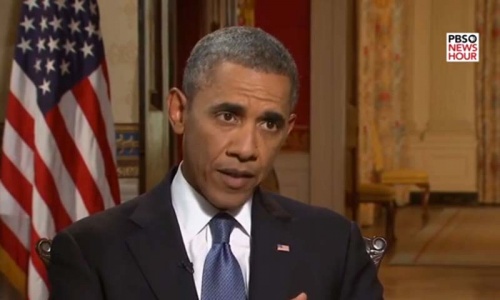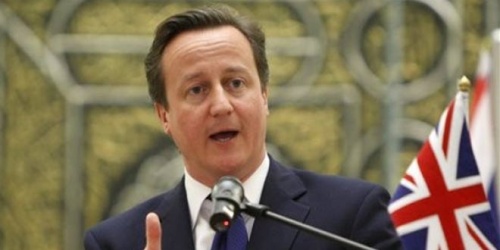DAMASCUS: UN chief Ban Ki-moon said Thursday his investigating team would report back this week on the suspected use of chemical weapons in Syria as embattled President Bashar al-Assad vowed to resist any US strike.
US President Barack Obama said Wednesday he has yet to make a decision on hitting Syria over horrific attacks last week that activists say killed hundreds of people and threatened to draw the West into the brutal 29-month conflict.
A Western bombing blitz had appeared imminent earlier this week, but US allies were increasingly reluctant to act before hearing the results of a UN chemical weapons probe.
Ban said the UN experts – on a third day of inspections of alleged attack sites near Damascus – would leave Syria by Saturday and report to him immediately.
He appealed to divided international powers to work together to head off military action against Syria, where the UN says 100,000 people have been killed and several million made homeless since the conflict erupted in March 2011.
“Diplomacy should be given a chance ... peace (should) be given a chance,” Ban said.
With any US-led missile strike unlikely to have UN Security Council backing, key Damascus allies Russia and Iran again warned against any Western intervention, saying it could set off a wider regional conflict.
Assad himself declared: “Syria will defend itself in the face of any aggression,” and said any attack would result in “victory” for the Syrian people.
On the ground, soldiers were being pulled back from their command posts and tougher security controls were in place at roadblocks and hospitals in case of possible air strikes.
Syria's nervous neighbours have also stepped up preparations for conflict, with Israel authorising a partial call-up of arm reservists while Turkey put its forces on heightened vigilance.
Britain, whose government faced a parliamentary revolt, insisted any military action would be allowed under international law as “humanitarian intervention”.
Russia was reportedly sending warships to the Mediterranean, while Britain said it was sending fighter jets to the strategic island of Cyprus.
International pressure for action mounted after grisly pictures emerged after the August 21 attacks in Ghouta east of Damascus showing dead children who appeared to have been gassed to death.
Damascus denied it deployed chemical weapons and blamed the attack on rebels.
Obama, who a year ago warned that the use of chemical weapons in Syria would cross a “red line,” said Wednesday that Washington had definitively concluded that the Assad regime was to blame.
Asked how close he was to ordering a US strike Obama told PBS NewsHour: “I have not made a decision.”
He said US action would be designed to send a “shot across the bow” to convince Syria it had “better not do it again.”
The Nobel Peace laureate, who wants to seal a legacy of ending foreign wars after the bloody Iraq and Afghan conflicts, not getting into new ones, argued that it was vital to send a clear message not just to Syria, but around the world.
“We do have to make sure that when countries break international norms on weapons like chemical weapons that could threaten us, that they are held accountable.”
But some commentators have warned that the US could effectively see itself fighting on the side of al Qaeda, whose militants have joined rebels in the battle to oust Assad.
Senior US lawmakers are expected to be briefed Thursday about classified intelligence on the chemical attack, which if confirmed would be the deadliest use of such weapons since Saddam Hussein gassed Iraqi Kurds in 1988.
The UN team had arrived in Syria last week to probe allegations of previous chemical attacks, including one in March in Khan al-Assal near the northern battleground of Aleppo.
Washington had bluntly signaled that a Security Council resolution that could have given a legal basis for an assault was going nowhere owing to Russian opposition.
In London, lawmakers were set to vote on a response to the attacks, but Prime Minister David Cameron was forced by a parliamentary revolt to pledge he would not order military action before the UN inspectors’ report was published.
However, the government said: “If action in the Security Council is blocked, the UK would still be permitted under international law to take exceptional measures” as “humanitarian intervention”.
French President Francois Hollande, whose government was the first to speak of the possible use of force against Syria over the gas attacks, said the world must act to stop the violence.
However, a government spokeswoman said coordinating an agreed response was “difficult”.
Syrian opposition leader Ahmad al-Jarba, on a visit to Paris, said the West must get rid of Assad and his “killing machine” and bring him to trial at the International Criminal Court.
The international community has remained largely impotent over the war despite the huge death toll, as Russia, along with China, have blocked three Security Council resolutions aimed at pressuring Assad.
However, fears Western intervention could ignite a regional conflagration were stoked further by Iran, whose army chief Hassan Firouzabadi warned that a strike on Syria would “drive the Zionists to the edge of fire” and cause untold losses among the US and British ranks.
Iran and Syria are main backers of the Lebanese Hezbollah militia which fought a devastating war with Israel in 2006.
And Israeli President Shimon Peres vowed that the Jewish state would “respond with all our might” if attacked.
In Syria, six soldiers were killed in a car bombing in a town near the capital, while 10 people mainly women and children, were killed in an army bombardment in the northeast, a rights monitoring group said.
Global financial markets remained on edge, although stocks rose slightly while oil prices slipped back after hitting two-year highs Wednesday on supply fears.















































Dear visitor, the comments section is undergoing an overhaul and will return soon.